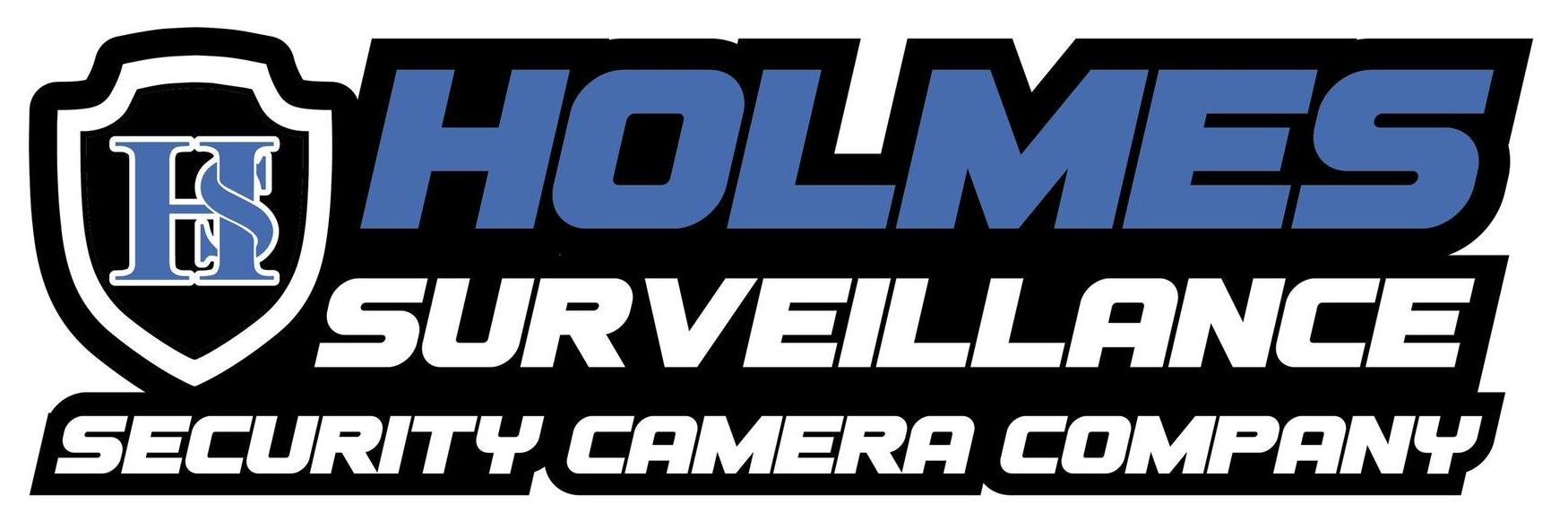FAQs
Holmes Surveillance
What types of security cameras will be used?
When choosing a security camera system, it’s important to start with your specific needs. The right option will depend on the area you want to protect, as some cameras are better suited for certain environments than others. No matter the type, having the proper camera in place is a key part of a reliable security system that helps keep your property safe.What areas will these cameras cover?
When deciding on the type of security camera system that best suits your needs, it is important to consider what area or areas you want to cover. A single security camera may not be able to capture all angles or provide sufficient coverage in a large enough area. Consider installing multiple cameras in strategic locations and positioning them so they can cover any blind spots. Doing so will ensure you have the most comprehensive coverage and that no areas are left unprotected.Will the cameras integrate with your existing systems?
Yes, integration is a key factor when choosing new security cameras. Ensuring compatibility with your existing systems allows your security setup to run smoothly and efficiently. Before purchasing, it’s important to confirm that the cameras you select can integrate seamlessly with your current equipment so you can maximize reliability and protection for your business. Here at Holmes Surveillance, we provide both home and commercial security camera systems. Contact us today for more information.How well can the camera work in different lighting conditions?
Customers often overlook how much lighting conditions affect the performance of security cameras. While many focus only on low-light capabilities and assume that a night vision or infrared model guarantees clear visibility at all times, this isn’t always true. For the best results, it’s important to choose a camera that balances both natural and artificial light to deliver consistent performance. If you need a home surveillance camera installation, contact Holmes Surveillance today.Is the security camera vandal-resistant?
It’s important to choose a camera that offers protection against vandalism. While vandal-resistant models are typically more expensive, they provide added security in areas where damage or tampering is a concern. If your property has locations that may be at risk, investing in vandal-resistant security camera systems can give you greater peace of mind.Are the security cameras weatherproof?
When selecting a security camera system, it’s essential to make sure the cameras are built to withstand their environment. Outdoor installations in particular require weatherproof cameras with the right IP (Ingress Protection) rating to ensure long-term reliability. For example: IP65 cameras are dust-tight and protected against water from a nozzle. IP66 cameras are dust-tight and resistant to powerful jets of water. IP67 cameras are dust-tight and can withstand temporary immersion in water. By choosing cameras with the appropriate rating, you can be confident they’ll perform reliably even in harsh weather conditions. This helps ensure continuous protection for your commercial property without interruptions.How accurate will the system be at detecting motion?
It’s important to choose a home or commercial security camera system with advanced motion detection. This feature helps the system accurately identify movement and record events efficiently, reducing false alerts and preventing unnecessary use of bandwidth. With 48% of all violent crime occurring at residences, according to SafeHome.org, investing in a system with modern motion detection can significantly enhance safety and provide peace of mind for your property. Contact us today for more information about our residential and commercial security camera systems.How will I be able to access the footage?
Before your home surveillance camera installation, you’ll want to consider whether your recorded footage will be stored locally or in the cloud. Local storage usually requires a separate computer or network-attached device, keeping the footage on-site. Cloud storage, on the other hand, depends on an internet connection but offers greater flexibility, allowing you to access your data from anywhere.How will the security camera system affect my network?
When installing a security camera system, it is important to consider the video compression and bandwidth factors. The compressor determines how much information is recorded in the video file, while the bandwidth describes how much data can be sent and received across a network. Higher-resolution cameras generate larger video sizes, which can put added strain on your security system's performance. If not monitored, this can lead to missing video, inconsistent image quality, and poor network performance. To avoid such issues, it is advisable to select a security camera system with compressors and bandwidths that match your needs. Doing so will help ensure a smooth functioning system with excellent image quality.Do you install electrical outlets behind the TV?
Yes, we install electrical outlets behind TVs whenever possible. This practice is Yes, whenever possible. Installing an outlet behind the TV is the safest option, since running extension cords or TV power cords inside the wall can create a fire hazard. A properly installed outlet ensures safety while also providing a cleaner, more organized look. Looking for dependable TV mounting services? Holmes Surveillance has you covered. Contact us today.Do you do commercial TV installations?
Yes, we have years of commercial and residential TV installation experience.
